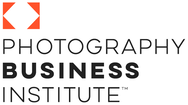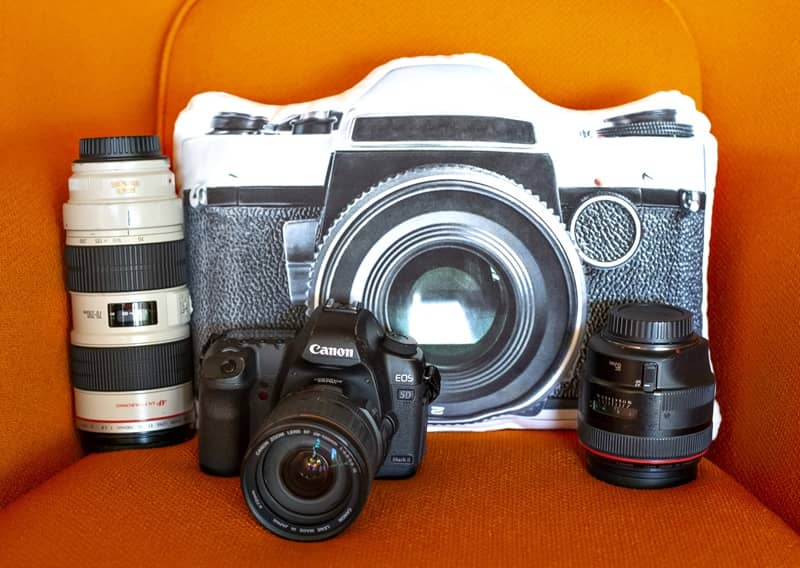Have you ever had that dream? You’re in the studio, about to start a family photography session. Your clients are ready and looking great. You get them in place, check your lighting, and pick up your camera. Looking through the viewfinder, you frame your image and press the shutter button. Nothing happens. You start to get nervous and press it repeatedly–nothing.
Clients trust photographers to capture the most significant moments and milestones of their lives. When considering how to build a successful photography business, in addition to finding photography clients, creating a marketing plan, and building your portfolio, you may not have considered the importance of maintaining your equipment. In order to avoid the above nightmare scenario in your waking life, it’s crucial to keep cameras and other photographic equipment clean, maintained, and ready to work.
Keep Your Gear in Tip-Top Condition
Send Cameras in for Regular Maintenance
Starting a photography business comes with a substantial investment in cameras and equipment. Keeping your cameras and the rest of your gear clean and well-maintained will be much easier on your wallet than frequently replacing things when they break. Most camera companies and local shops offer maintenance, cleaning, and inspection services. Schedule time off periodically to send equipment in or work in a service rotation for each of your camera bodies and gear. Think of each maintenance appointment as a much-needed spa day for your equipment.
Getting your gear in for routine check-ups will help avoid more expensive fixes and disasters down the road. If your camera is under warranty, you may be able to get regular service inspections for free.
Keep Up with Routine DIY Care
You can keep up with essential camera care at home or in your studio. You should always have a few cleaning and maintenance necessities on hand. These include lens cleaner fluid, lens cleaning cloths or tissues, and a camera air puffer for blowing away dust and debris. While many other camera cleaning products are available, these are the must-have basics.
A regular camera cleaning routine should start with an air puffer or blower brush to remove dust and other debris from your lenses and camera body. Next, spray your lens cleaning fluid onto your lens tissue or a soft microfiber cloth. It is important to remember you should never spray lens fluid directly onto your lenses. Instead, mist the solution onto a cleaning cloth. Wipe your lenses clean in a gentle, circular motion.
Keep Camera Sensors Clean
A camera’s image sensor is one of the most critical components to keep clean. A dirty image sensor can result in spots on your images or blurry photographs. If you’re new to photography, the thought of cleaning the sensor yourself may be intimidating. Luckily, many digital cameras have a built-in clean image sensor function that gently vibrates the sensor to clear it of dust. If you’ve used your camera’s image sensor cleaning function and still see spots on your photographs or visible debris in the viewfinder, professional cleaning may be the best solution.
Invest in Durable Camera Bags
Investing in high-quality, durable camera bags is one of the easiest ways to keep your cameras, lenses, and other equipment safe. Heavy-duty gear bags protect your cameras from the elements and keep them padded and safe when transported.
Most professional camera bags will have individual cushioned spaces for each lens, flash, and camera body. Because of this, even if your bag is flung over a shoulder or tossed into the back of a car, your gear will be snug and protected.
Keep Equipment Safe from Extreme Conditions
Cameras, lenses, flashes, and other photographic gear are made up of moving mechanical and electrical parts. Mechanical and electrical equipment does not do well with extreme temperatures or excessive moisture. Protecting your cameras from rain, high heat, and freezing conditions is crucial.
Careers in photography sometimes include adventurous situations. If a photography session in the rain is unavoidable, bring protective rain covers, umbrellas, or camera sleeves to keep your equipment safe. Including silica gel packets in your camera bag can help control humidity levels and prevent moisture buildup and even mold.
Remember to Replace Lens and Body Caps
If you’re in a hurry to pack up after a photography session, you may think there’s no harm in leaving the lens or body cap off your camera as you place it in the camera bag. Likewise, you may have left your camera out, sitting lens cap free on your desk while editing images. However, lens and body caps go a long way in keeping dust from landing on the more delicate components of your camera. Remembering always to replace caps can save you from extra cleaning and expensive repairs in the future.
Keeping up with at-home and professional maintenance of your cameras and equipment is crucial to avoid equipment breakdown at inopportune moments. No one wants to have to stop and reschedule an important photography session because of camera failure. By being consistent with camera lens and body cleanings, making regular service appointments, investing in durable camera bags and protective gear, and keeping all equipment safe from extreme conditions, you can help those nightmare scenes stay in the dream world.
Video
Infographic
When building a successful photography business, besides finding clients and creating a marketing plan, it's crucial to maintain your equipment. Keeping cameras and gear clean and well-maintained is essential. Check out this infographic for six camera care tips.











